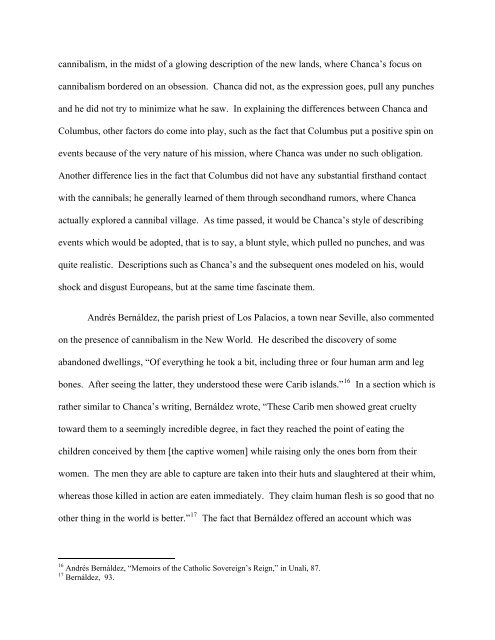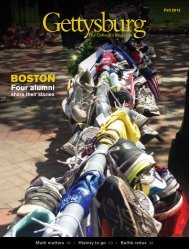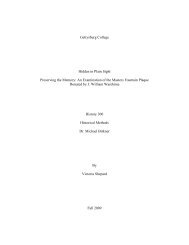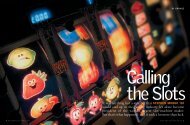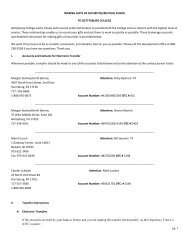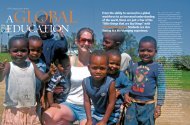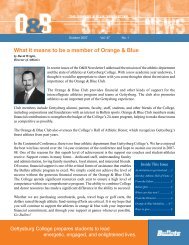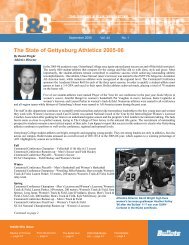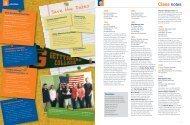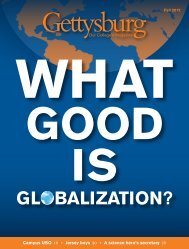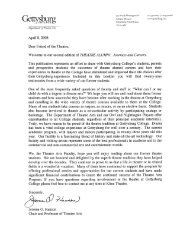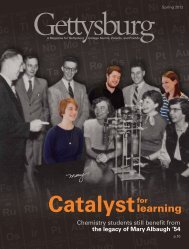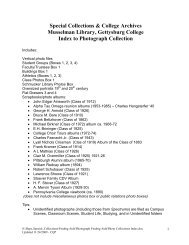Sweet Tooth for Empire: Sugar and the British Atlantic World
Sweet Tooth for Empire: Sugar and the British Atlantic World
Sweet Tooth for Empire: Sugar and the British Atlantic World
Create successful ePaper yourself
Turn your PDF publications into a flip-book with our unique Google optimized e-Paper software.
cannibalism, in <strong>the</strong> midst of a glowing description of <strong>the</strong> new l<strong>and</strong>s, where Chanca’s focus on<br />
cannibalism bordered on an obsession. Chanca did not, as <strong>the</strong> expression goes, pull any punches<br />
<strong>and</strong> he did not try to minimize what he saw. In explaining <strong>the</strong> differences between Chanca <strong>and</strong><br />
Columbus, o<strong>the</strong>r factors do come into play, such as <strong>the</strong> fact that Columbus put a positive spin on<br />
events because of <strong>the</strong> very nature of his mission, where Chanca was under no such obligation.<br />
Ano<strong>the</strong>r difference lies in <strong>the</strong> fact that Columbus did not have any substantial firsth<strong>and</strong> contact<br />
with <strong>the</strong> cannibals; he generally learned of <strong>the</strong>m through secondh<strong>and</strong> rumors, where Chanca<br />
actually explored a cannibal village. As time passed, it would be Chanca’s style of describing<br />
events which would be adopted, that is to say, a blunt style, which pulled no punches, <strong>and</strong> was<br />
quite realistic. Descriptions such as Chanca’s <strong>and</strong> <strong>the</strong> subsequent ones modeled on his, would<br />
shock <strong>and</strong> disgust Europeans, but at <strong>the</strong> same time fascinate <strong>the</strong>m.<br />
Andrés Bernáldez, <strong>the</strong> parish priest of Los Palacios, a town near Seville, also commented<br />
on <strong>the</strong> presence of cannibalism in <strong>the</strong> New <strong>World</strong>. He described <strong>the</strong> discovery of some<br />
ab<strong>and</strong>oned dwellings, “Of everything he took a bit, including three or four human arm <strong>and</strong> leg<br />
bones. After seeing <strong>the</strong> latter, <strong>the</strong>y understood <strong>the</strong>se were Carib isl<strong>and</strong>s.” 16 In a section which is<br />
ra<strong>the</strong>r similar to Chanca’s writing, Bernáldez wrote, “These Carib men showed great cruelty<br />
toward <strong>the</strong>m to a seemingly incredible degree, in fact <strong>the</strong>y reached <strong>the</strong> point of eating <strong>the</strong><br />
children conceived by <strong>the</strong>m [<strong>the</strong> captive women] while raising only <strong>the</strong> ones born from <strong>the</strong>ir<br />
women. The men <strong>the</strong>y are able to capture are taken into <strong>the</strong>ir huts <strong>and</strong> slaughtered at <strong>the</strong>ir whim,<br />
whereas those killed in action are eaten immediately. They claim human flesh is so good that no<br />
o<strong>the</strong>r thing in <strong>the</strong> world is better.” 17 The fact that Bernáldez offered an account which was<br />
16 Andrés Bernáldez, “Memoirs of <strong>the</strong> Catholic Sovereign’s Reign,” in Unali, 87.<br />
17 Bernáldez, 93.


